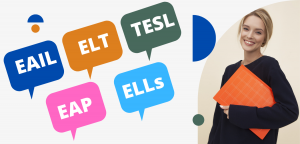Sailing the Sea of CTRL C + V
By now, I’m sure we’ve all seen the Melania Trump speech that plagiarized Michelle Obama. Finally, teachers the world over have the perfect example to demonstrate blatant plagiarism to their students. The event has given me the perfect excuse to finish a post I started earlier this year.
“Imitation is the sincerest [form] of flattery”. ~ Charles Caleb Colton 2 (1824)
Luckily, Colton didn’t have the internet to deal with. But we do.
I’ve been spending the past few weeks thinking and talking about the plight of online teachers and eBook authors throughout the world as I am both. In the age we are living, it is too easy to just copy and paste someone else’s work and pass it off as your own. It happens in music, in art, schools, in business and sometimes even in the news as we have just seen.
Plagiarism is nothing new. “Veni, vidi, vici,” or “I came, I saw, I conquered,” stated by Julius Caesar to the Roman senate, was, I’m sure, used by some unscrupulous used chariot dealer as “I came, I saw, I got a great deal.”
How does anyone, either online or writing, protect themselves? How does one avoid committing it themselves?
When we write, we write from our own experiences and knowledge base from over the years. It is hard to remember what we thought of ourselves or have actually heard in the past. As a songwriter, I know that a melody I came up with in my head one day was actually an old Hebrew folk song that I heard 50 years before. Of course I didn’t know that consciously, it was somewhere in the back of my grey matter and just came out one day. Fortunately, a friend recognized it and I quickly shelved the idea. Too bad my friend wasn’t there for Melania Trump.
Jaime’s Voyage
A while ago, my dear friend and colleague, Jaime Miller, started talking about her problem with a certain “person” who blatantly stole, yes, I said, stole her work. No polite copied, adapted, transformed or made homage to here, he right out stole her work. This “teacher” systematically copied a large part of her TOEFL training course, “Advanced Speaking Guide,” that Jaime took years to develop, and word for word (when he got the words right) had the intestinal fortitude to video himself parroting her material and offering it for sale over the internet and on Udemy. Nervy? Yes. Unethical? Yes. Illegal? Yes.
Punishable? Well…
Shockingly, one day Jaime found her materials for sale on the internet by someone else. In searching, she found them on his site, his blog posts, his lead generating tool and YouTube. Jaime’s files were even found on his server which meant her server had been intentionally breached. Jaime immediately got a lawyer and contacted Udemy, the site which was facilitating his sales and gratefully, they immediately agreed that it was indeed a violation of copyright law and they suspended all sales and even offered refunds to unsuspecting purchasers. Still frustrated, Jaime then got in contact with the “Xerox King” in Southeast Asia and asked that he stop selling her materials. He admitted the theft but refused to pay any damages. Success. Somewhat. No remuneration, no prosecution, no punishment.
Argh, me matey!
In doing more research into this post, I came across many other colleagues who had experienced the same problems with piracy. Bruce Stirling and Gabby Wallace have both gone through the same in the past. I have seen, over the years in business, many bosses stealing workers’ ideas; supervisors who have passed off other teachers’ work as their own. Word for word. Is this the price we have to pay?
Hell no! Fight back. Fight hard. Remember that your computer timestamps your work. Use it. Don’t allow these pirates to stay afloat.
I often see on Facebook, people sharing posts with free downloadable copies of the most popular titles in EFL/ESL. I myself take the time to tell them of their violation and report them to Facebook and to the authors and/or publishers.
Adaptation the right way
My friend Shanthi Cumaraswamy Streat writes a weekly blog called “English with a Twist.” Without question, her material is wonderful; she skillfully adapts a lot of information into concise, well-organized posts. Now even though much of this information is freely available from other sources, as is much of what we all write, Shanthi is never shy about citing and crediting her sources. This is what we need more of; giving credit where credit is due. Some might think that this is demonstrating a weakness as we all borrow material for our work. I like to think of it as a more professional way of reporting, collecting, collating and curating information. This is a fine example for all of us in education to embrace and practice in order to set a standard for our students and to contextualize what we expect of them in their own work.
Teacher materials
By far, the most complete collection of copyright information and rights of use guidelines are by Dr. Robert N. Diotalevi, Esq., LL.M., Program Coordinator, Legal Studies, Florida Gulf Coast University. I’ve met Bob online and I think he has the most organized collection of guidelines we need as educators to properly comply with the law. His “An education in ©opyright Law: a primer for cyberspace” is brilliant and a must read for all of us. I refer to it often. You can, and should, find it here at:
http://www.libres-ejournal.info/912/.
The law
I got in touch with my favorite lawyer-turned-teacher, Michael Chambers, and he gathered this information for us from a lawyer friend in Russia.
Russian legislation protects both moral rights and exclusive rights of the author. Moral rights include the right to an author’s name, the right to publish a work and to make any modifications, additions, reductions to the work. Exclusive rights include the right of reproduction, distribution, public display, import, transfer, processing, making available to the public.
An author’s rights are protected from the moment of a work’s creation and an author is not obliged to register their work although it is recommended that you include the copyright notification in your works or materials.
If you find that somebody breaks the rights to your work, I recommend the following steps:
1) take a screenshot or notarized page of the violator’s site
2) contact the hosting provider, social network or search provider demanding that your materials are removed from their site
3) file a lawsuit in a court requiring the violator to pay damages or compensation
4)Laws will differ from country to country, so I suggest you research carefully your rights and possible actions based upon where you live. I’ve used Russia just as a general guideline.
The solution
The obvious solution is to stop writing. No way! We have to keep at it and expect that someone somewhere is going to copy or steal from us. We can however continue to fight these pirates by contacting the sites that they use to promote our work. In many cases, documentation sent to a site will be enough. They don’t want to be involved in legal hassles so they will most likely take the info down. Better than nothing.
Set a good example and don’t use others’ materials without permission and without citing references. Report violations you see to the proper author or publisher so they may take action.
How can we expect our students to respect the laws if we ourselves don’t?







